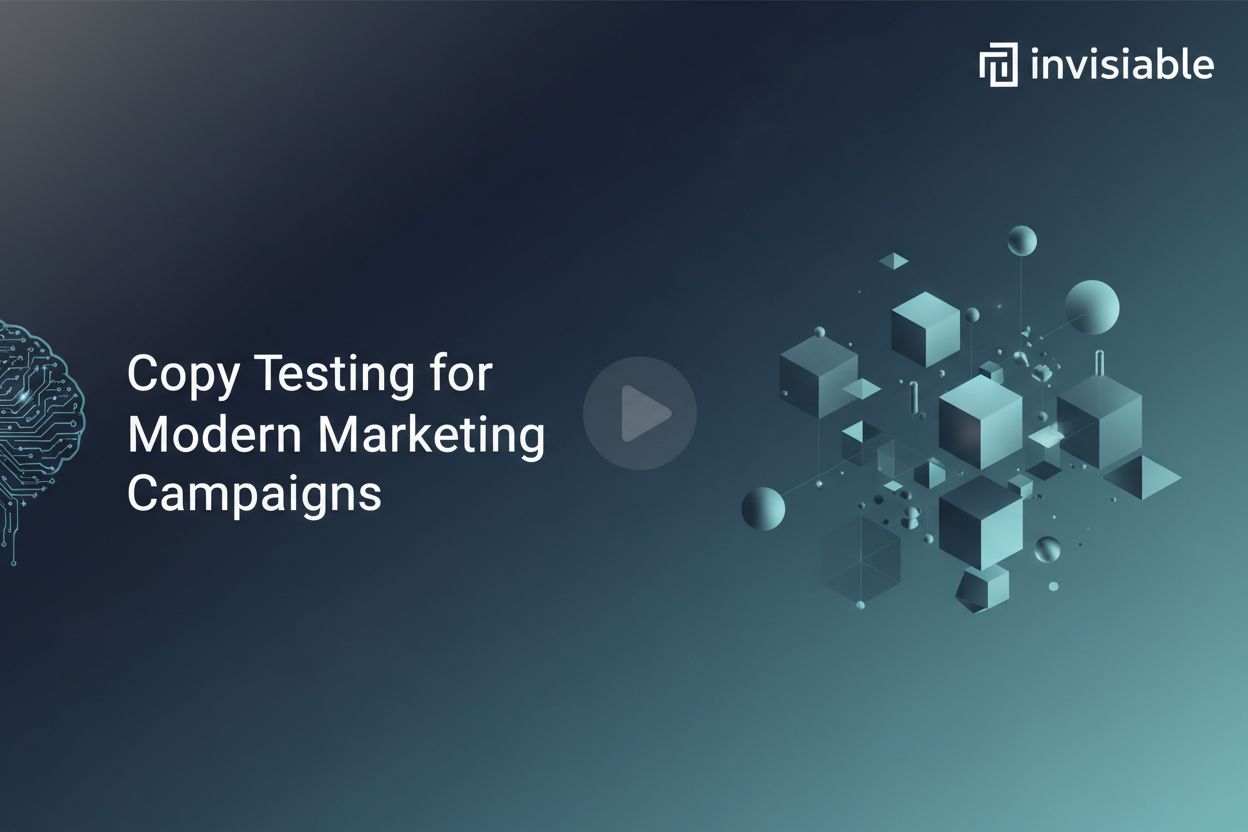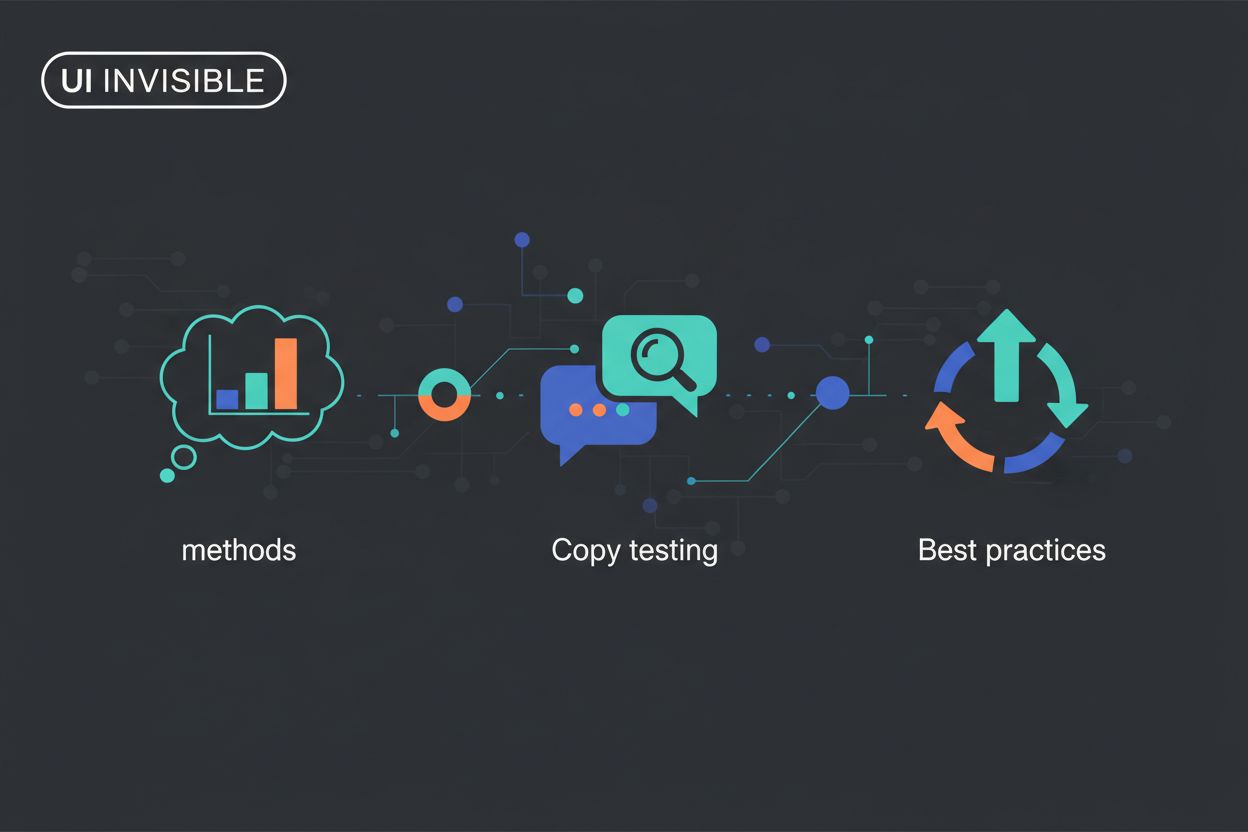Ethical Considerations in AI Content Creation
TL;DR
Introduction: The Rise of AI in Content and the Urgency of Ethics
Alright, let's dive into this ai content thing, shall we? Did you know generative ai is predicted to become a 1.3 trillion dollar market by 2032 (Generative AI to Become a $1.3 Trillion Market by 2032, Research ...)? Content Bloom reports that's a huge jump from just $40 billion in 2022 (This is absolutely insane: There are now $40 BILLION worth of US ...). Madness!
So, what's the deal?
- ai tools are becoming super important for creating content (Combining Human Creativity and AI-Assisted Content Creation).
- They can make things way more efficient and scalable.
- Think ChatGPT and dall-e, showing off some serious creative potential.
But- here's where it gets tricky. We gotta talk ethics, because things could get messy real fast. Misuse is a big worry, and we need guidelines, like, yesterday. We're talking about things like AI generating convincing fake news that could sway public opinion, or AI tools creating deepfakes that damage reputations. We need clear rules to prevent these kinds of harms.
Understanding AI-Generated Content: What It Is and How It's Growing
ai-generated content, huh? It's basically content made by ai, not humans. Think blogs, images, or even code!
- ai algorithms are doing the heavy lifting, creating all sorts of stuff.
- But, it's still people giving the ai prompts to get started.
- You can see this in action across healthcare, retail, finance - everywhere! For instance, in healthcare, AI might draft patient summaries or preliminary diagnostic reports. In retail, it could generate personalized product descriptions or marketing emails. And in finance, AI might create market analysis reports or draft customer service responses.
Key Ethical Concerns in AI Content Creation
Alright, so ai's making content now, huh? Sounds kinda wild, right? But with great power comes, well, you know... ethical headaches.
See, ai models learn from data, and if that data's biased, the ai will be too - it's not rocket science. This can lead to some seriously unfair outcomes. Imagine an ai used for hiring that favors one gender over another just because it was trained on data that mostly showed men in leadership roles. Not cool. According to Shaheryar Yousaf writing on DEV Community, ai tools may amplify biases present in their training data, necessitating the use of diverse data sets and continuous monitoring to mitigate these issues.
And what about when ai just straight-up makes stuff up? These algos can generate false or misleading content, which can really mess with public opinion and trust. For example, an AI could generate a seemingly credible news article claiming a popular vaccine is unsafe, based on a few misinterpreted studies, potentially causing widespread public health concerns. We need to be super careful and fact-check everything, especially when it's coming from a machine.
Then there's the whole plagiarism thing. ai can reproduce existing content without giving credit, which is a big no-no. Who owns what when ai's involved? It's a legal minefield, and companies could face some serious consequences if they're not careful.
oh! and don't forget about your personal data. If personal customer information is used to create ai content, it can be an ethical problem, particularly concerning data privacy regulations and safeguarding privacy rights. This becomes an issue because using personal data without explicit consent, or if that data is mishandled or exposed, violates privacy rights. Regulations like GDPR or CCPA are designed to prevent this, requiring clear consent and secure data handling.
So, yeah, lots to think about. What happens next, though?
Best Practices for Ethical AI Content Creation
One of the big questions when creating content with ai is: how do you do it ethically? Turns out, it's not as simple as hitting "generate."
Here are some best practices to keep in mind:
- Define a clear purpose: Know why you're creating the content in the first place. Is it to educate, entertain, or promote something specific? According to Contently, clearly defining your goals upfront helps avoid generating harmful or inappropriate stuff.
- Input clear instructions with guardrails: ai tools are only as good as the prompts you give them. So, give explicit instructions and set limits to avoid biased or discriminatory content. For example, a prompt might be: "Write a blog post about sustainable fashion, focusing on eco-friendly materials. Ensure the tone is informative and avoid any mention of fast fashion brands." This sets clear boundaries.
- Use diverse data input methods and sources: ai learns from data, so make sure that data is diverse! This helps reduce the risk of reinforcing existing biases, as noted by Shaheryar Yousaf on DEV Community.
- Monitor and evaluate output: Regularly check ai-generated content for accuracy and potential ethical issues.
A good rule of thumb is to treat ai like a very enthusiastic, but kinda clueless, intern. It needs guidance and supervision, always!
So, fact-checking with subject matter experts is also important. ai might pull "facts" out of thin air, as Content Bloom warns. Subject matter experts are crucial because they possess the deep, nuanced understanding that AI currently lacks. An AI might confidently state that "the sky is green on Tuesdays" because it found a fictional story mentioning that, or it might misinterpret complex scientific data, presenting a plausible-sounding but entirely incorrect "fact." Experts can spot these anomalies and ensure accuracy.
The Role of Human Oversight in AI Content
ai content is cool, but can it really replace humans? Nah. Human oversight is super important, and here's why:
- It prevents biased or misleading content. ai models, like, doesn't always get it right because they lack true understanding and context. They can generate content that is factually incorrect or subtly biased without realizing it.
- Humans makes sure content's accurate and relevant to the audience. We understand nuance, cultural context, and the specific needs of our readers in a way AI currently can't.
- Ethical standards? yeah, humans are defs better at that. We have empathy, moral reasoning, and the ability to consider the broader societal impact of content, which are essential for navigating complex ethical situations.
So, what's next? Case studies that show us what happens when things go wrong and when they go right.
Case Studies: Ethical Failures and Successes
Ever wonder how ai ethics plays out in the real world? It's not always smooth sailing, but there are some wins too.
Bias amplification: Imagine a recruitment tool that, due to biased training data, consistently ranks male candidates higher for leadership roles than equally qualified female candidates. This perpetuates workplace inequality.
Misinformation spread: A political campaign might use AI to generate thousands of fake social media posts and articles designed to spread false narratives about an opponent, potentially influencing an election outcome.
Privacy breaches: A company might use customer purchase history data to train an AI for personalized recommendations, but if this data is not properly anonymized or secured, it could be leaked, exposing sensitive consumer habits.
Responsible data handling: A company might implement a strict policy requiring explicit user consent before using any personal data for AI training, and anonymize all data to protect individual privacy.
Bias mitigation: A news organization might actively curate diverse datasets for its AI news summarization tool, ensuring it covers a wide range of perspectives and avoids over-representing certain viewpoints.
Transparency efforts: A brand might clearly label all AI-generated images on its website, informing customers that the visuals were created using AI and explaining the purpose.
The Future of AI Content Creation: Balancing Innovation and Ethics
The future of AI content creation is poised for incredible innovation, but it's crucial that this progress is guided by a strong ethical compass. We'll likely see AI tools become even more sophisticated, capable of generating highly personalized and context-aware content across various formats. This could lead to hyper-targeted marketing, more engaging educational materials, and even AI-assisted creative writing and art.
However, this innovation brings significant challenges. The potential for AI to generate convincing misinformation at scale, amplify existing societal biases, or infringe on intellectual property rights will only grow. The key to navigating this future lies in establishing a delicate balance. This means developing robust AI governance frameworks, promoting responsible AI development practices, and fostering a culture of continuous ethical evaluation. Strategies will involve creating AI systems that are inherently transparent, explainable, and auditable. We'll need to invest in AI literacy programs to help the public understand and critically engage with AI-generated content. Ultimately, the goal is to harness AI's power to enhance human creativity and communication, not to replace critical thinking or erode trust.
Conclusion: Upholding Ethical Standards in the Age of AI
Alright, so we've been talking ai ethics, and it's kinda a big deal, right? How do we wrap this up?
- It's super important to keep ethical standards front and center. Think about bias, privacy, and making sure stuff is accurate.
- Use responsible ai strategies: This includes having clear guidelines, using diverse data, and implementing human oversight, as Content Bloom and others have suggested.
- Marketers and creators? You gotta step up. Think about the implications of what you're putting out there.
So, yeah, ai's the future, but let's make it an ethical one, okay?





